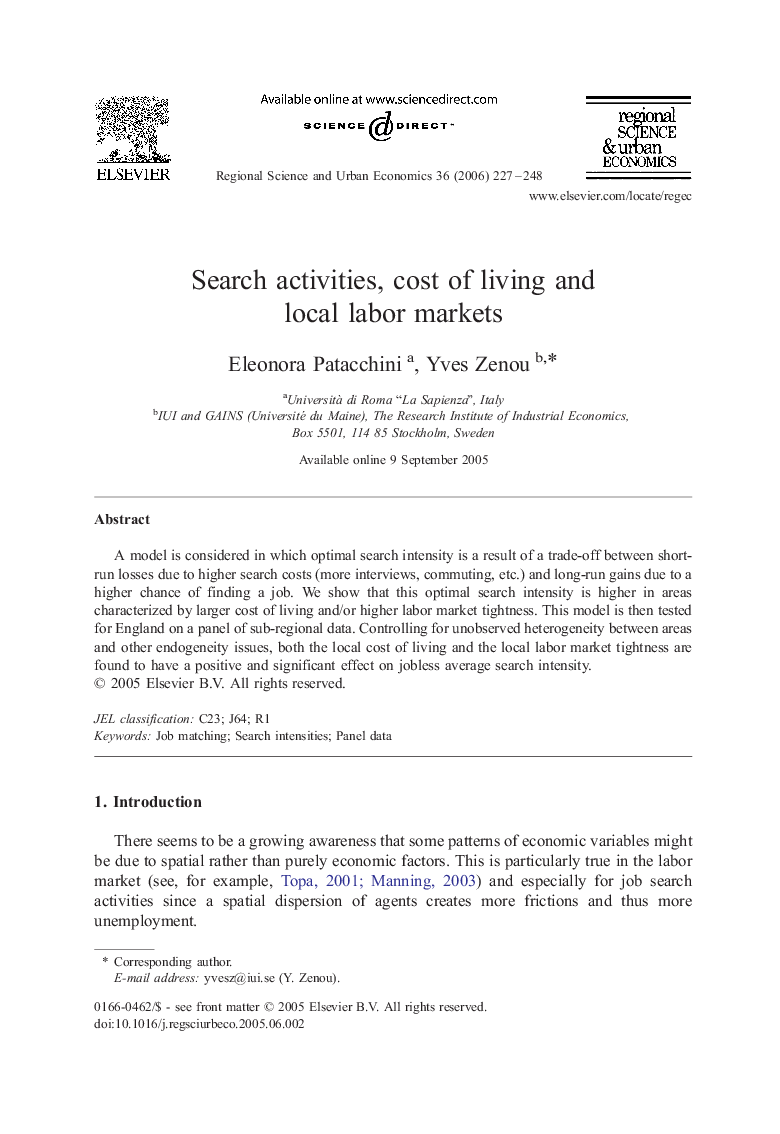| Article ID | Journal | Published Year | Pages | File Type |
|---|---|---|---|---|
| 983687 | Regional Science and Urban Economics | 2006 | 22 Pages |
Abstract
A model is considered in which optimal search intensity is a result of a trade-off between short-run losses due to higher search costs (more interviews, commuting, etc.) and long-run gains due to a higher chance of finding a job. We show that this optimal search intensity is higher in areas characterized by larger cost of living and/or higher labor market tightness. This model is then tested for England on a panel of sub-regional data. Controlling for unobserved heterogeneity between areas and other endogeneity issues, both the local cost of living and the local labor market tightness are found to have a positive and significant effect on jobless average search intensity.
Keywords
Related Topics
Social Sciences and Humanities
Economics, Econometrics and Finance
Economics and Econometrics
Authors
Eleonora Patacchini, Yves Zenou,
